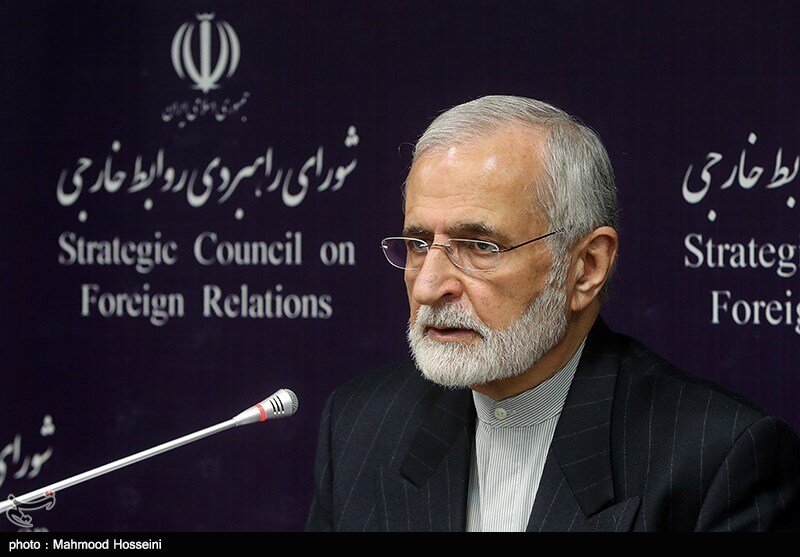Sanctioning Zarif shows U.S. frustration, says Kharrazi

TEHRAN – Kamal Kharrazi, chairman of Iran’s Strategic Council on Foreign Relations, has strongly criticized a recent move by the U.S. government to impose sanctions on Foreign Minister Mohammad Javad Zarif, saying the move demonstrated the White House’s “frustration” with Iran.
“The U.S. measure to sanction Dr. Zarif means the White House is frustrated in the face of the Islamic Republic of Iran’s explicit language,” Kharrazi said in a statement on Friday.
“The U.S. president and secretary of state have repeatedly called for negotiations with Iran but at the same time put sanctions on the head of the country’s diplomatic apparatus,” he said, according to Tasnim.
Kharrazi, who himself has served as Iran’s foreign minister under President Khatami, added the move shows that the U.S. calls for talks are nothing but deceit.
“The U.S. president acts unilaterally even against his allies as they have not been the least successful in negotiations with the U.S. over Europe and international issues,” he remarked.
On Wednesday, both the U.S. departments of state and treasury announced the imposition of sanctions against Zarif because he “acted or purported to act for or on behalf of, directly or indirectly, the Supreme Leader of the Islamic Republic of Iran”.
Responding to the move, Zarif said being designated by the U.S. would not affect him since he has no properties outside Iran.
“We know that calling for dialog & peace is an existential threat to B-Team. And since reason for designating me is my words, would ‘US persons’ need OFAC license to ‘engage’ with me by reading my writings or listening to interviews?” he tweeted on Wednesday.
The Zarif sanctions came more than a week after U.S. Secretary of State Mike Pompeo said he would be willing to travel to Tehran to address the Iranian people about U.S. foreign policy.
Pompeo likened a trip to Tehran to how his Iranian counterpart communicates with the American public during his trips to the United Nations in New York.
“Sure, if that’s the call, happily go there,” Pompeo said. “I’d like a chance to go, not do propaganda but speak the truth to the Iranian people about what it is their leadership has done and how it has harmed Iran.”
Tehran dismissed the U.S. secretary of state’s remarks, saying Iranian journalists have frequently invited him and other U.S. officials for interviews, but they have flatly refused the offers.
In his statement, Kharrazi said as a result of the sanctions, U.S. media outlets would inevitably face troubles over conducting interviews with Zarif.
“We should wait and see how the media and social networks react to such anti-freedom of speech measure, and whether they pursue their mission or they continue in silence,” he added.
Tensions between Tehran and Washington escalated ever since the U.S. administration of Donald Trump adopted a distinctly hostile approach toward Iran, which included pulling out of the historic Iran nuclear deal and re-imposing sanctions on Tehran.
Back in April, the U.S. blacklisted Iran’s Islamic Revolution Guards Corps (IRGC) as a “foreign terrorist organization”. In retaliation, the Iranian Supreme National Security Council named the United States Central Command (CENTCOM) a terrorist organization.
The tensions further soared on June 20, when the Iranian military shot down an unmanned U.S. surveillance drone after it breached Iran’s airspace. The U.S. drone entered the Iranian airspace from the United Arab Emirates (UAE).
On June 24, Trump announced new sanctions against Iran, targeting office of Leader of the Islamic Revolution Ayatollah Ali Khamenei and top commanders of the IRGC.
MH/PA
Leave a Comment